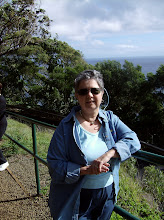School is starting this very week and I feel like a prisoner of my own choices. I’ve chosen to go back to school to pursue this post-master’s FNP certification. I’ve committed my time, my energy, my schedule and risked the significant relationships in my life toward the completion of this graduate work. Yet, right now, I feel as though I may very well have chosen poorly, and that is most discouraging. Some dreadful confusion has led to our not having an instructor in place for one of my courses. The tempus is fugit-ing and so far, all we (students) know is that the school is “working on the problem”.
This seems to be happening everywhere. Just last week I was trying to help another school sort out a similar faculty difficulty. That school was scheduled to bring 8 senior students (BSN program) to my workplace, and they found themselves at the 11th hour without a clinical instructor for the student group. I got pulled into the problem-solving because our Education Specialist was out on medical leave. In the end, the school found someone to teach the clinical section. Who knows what her credentials are, and whether she’s ever seen patients like those we serve every day. She’ll have no rapport with the staff here and no familiarity with the curriculum the students are studying. A lovely way to begin the semester!
In the long-run, this fall’s difficulty will disappear from my memory. I will accomplish my goal and like all unpleasant experiences, this one will dissipate and become a thing of the past. For me, this is merely annoying.
For my fellow students, and especially for those undergraduates who are set to begin their clinical instruction at my hospital next week, I find this situation reprehensible. My colleagues in graduate school are mostly young women (okay, there’s one guy). They either have jobs that function on shift-work or student loans that will bury them for years to come. They have young children and aging parents to care for, and spouses who probably have less tolerance for nursing graduate school than mine (with two PhDs) does.
We (hubby & I) were having a conversation just last evening reminiscing about our fond memories of graduate school. His experiences were in the 1950s and mine in the 1970s, which seems like eons ago. We remember faculty members who liked their work, faculty who liked students and were committed to our success. We remember faculty who mentored us, encouraged us and set each of us (twenty years apart) on paths that would launch us on meaningful careers of life-long learning. What are my school colleagues getting out of their graduate experience? And, perhaps even more importantly, what are today’s undergrads experiencing in their educational programs? Will they even WANT to consider going on for more schooling? If the undergraduate experience is discouraging, why would anyone sign up for more?
This is, I believe, the 21st century challenge in higher education: to recruit, hire, support and retain high-quality teachers. How do you do that, especially with a reward system so skewed, especially in the healthcare fields, toward being out in a practice setting, rather than in higher education? Out in the work-world of healthcare, the practitioner can earn at least half again as much each year as the professor who taught her. Its sad, but true.
That I am in nursing gives me only one perspective and limited insight, but I have to believe that the situation is similar in all the healthcare careers including medicine, the rehabilitation therapies, dentistry and social work, each of which are requiring increasing levels of graduate education for practice. As we continue to require more years of education, we tax the faculty we have and we probably dissuade the practitioner from teaching, given the financial burden he or she has accumulated during the preparatory educational process.
This time around, getting graduate education in the 21st century, I find myself discouraged. If asked by a colleague, “should I go back to graduate school?” my answer might not be the rapid and automatic “yes” that it would have been before my most recent experience. No one is, at this moment, mentoring me as a student. I have to wonder if my younger colleagues, who do not have the nostalgic memories of graduate school of long ago, are even more discouraged than I am.
What should graduate education be?
To my mind it should definitely be:
-- An exciting encounter in which the learner is stretched and challenged by the information, not by the logistics of learning.
-- A reinforcing, supportive place where the learner gains a new vision of his or her own professional possibilities, a time to imagine an ever-opening future.
-- An opportunity to hone those generalizable skills like reading comprehension, analysis, synthesis and problem-solving that will complement anyone’s lifetime of experience.
-- A place where learners meet faculty who are excited and positive about their work, connected to the current trends in their field, happy in the work that they’ve chosen, rewarded for their ability to teach well and impart wisdom as well as facts.
-- An environment where faculty are also supported, encouraged, mentored, enlarged and connected to each other and the practice world into which they are charged to launch the students.
Wishful thinking? Probably.
If only I could see my way clear to be part of the solution, instead of just a prophet in my own land.
Tuesday, August 25, 2009
Subscribe to:
Post Comments (Atom)

No comments:
Post a Comment